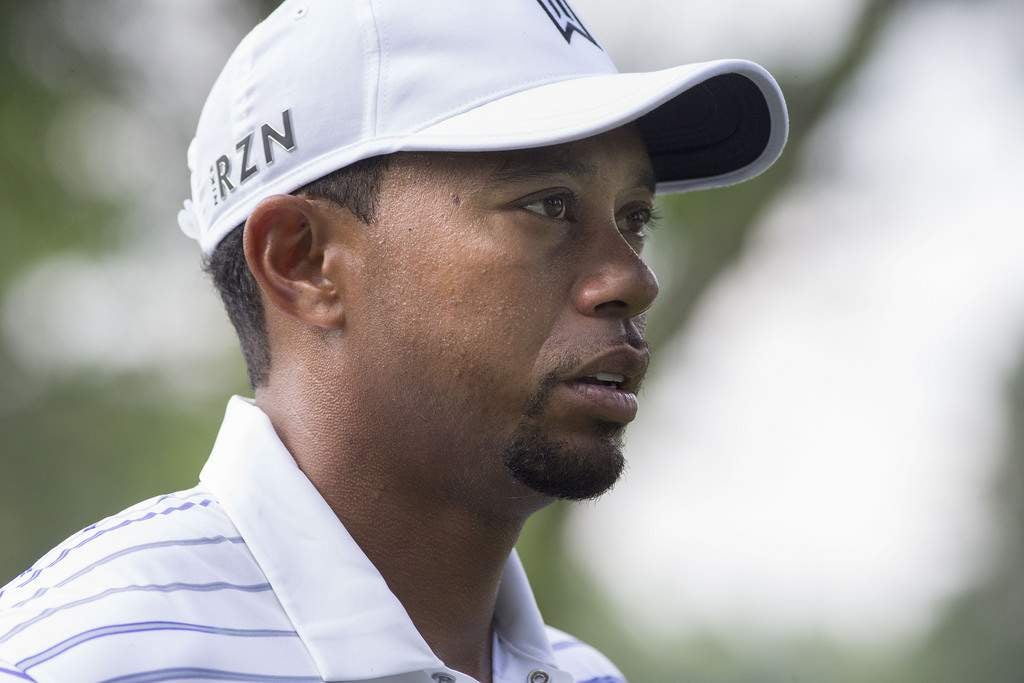
The images of Tiger Woods are a reminder of the challenges of fame and the limits of wealth, writes Christopher Jackson
They’re not images to be easily forgotten: Tiger Woods is ordered by two notably un-starstruck policemen on an empty Florida highway to walk in a straight line, and recite the alphabet. It’s exactly how you or I would be treated if we were stopped on suspicion of being under the influence in that alligator-rife state. The only concession to the fame of the hapless golfer is the fact of it having been filmed – indeed one wonders about the appropriateness of our having seen these pictures at all.
But what follows is more shocking still: the man who has been to such a pinnacle of physical achievement – the same man who, for instance, summoned up all his concentration to chip in that birdie on the 16th at the US Masters in 2005, and who won the 2008 US Open with a broken leg (read that again, with a broken leg) – fails to do it.
Then the police officer – if a golf fan, then suppressing his fandom with notable professionalism – addresses Woods in a voice which would be more authoritative if it weren’t so nasal: ‘Recite the English alphabet in a slow non-rhythmic manner, meaning you’re not going to sing it.’ It’s not quite clear why there were fears that Woods was in danger of breaking into song – it’s obvious that he isn’t in a very musical place. But he manages his recitation, albeit in a hollow voice.
It shows what a lonely place fame can be. This latest Woods embarrassment occurred near his home, as did the original episode in 2009 when, after an argument with his wife, he crashed his Cadillac Escalade SUV into a fire hydrant. Each time there is the sense that Woods is looking to escape a pampered solitude, and rush out into the real world, to assert a rebellion against the gilt confinements of success.
With a few exceptions – Michael Jordan and Roger Federer spring to mind – no human being has been so assiduously sponsored as Woods. We can posit that the process doesn’t have a very salubrious effect on mental health: Woods’ fellow Nike sponsees include a serial cheater and bully (Lance Armstrong) and a murderer (Oscar Pistorius). Corporate sponsorship places a burden which can only be borne if one is level-headed or inherently obliging, as Federer is. Those who are not eventually balk: it turns out that it isn’t easy to go through life smiling, and doing the right thing. The freedom of being human is the freedom to make mistakes and regret them with a reasonable degree of privacy.
Added to the predicament of stars like Woods are the enormous deprivations that come with sporting success. Woods’ fellow golfer Nick Faldo used to regret that he had had no friends in his youth: he had been too busy hitting a small white ball into a cup. Furthermore, sport gives rise not to friendship but jocularity and mateyness, and this leaves an elevated individual like Woods peculiarly alone in the middle of life, once the body has begun to give way, and the memory of applause starts to fade. Woods used to compete – to feel the thrill of the chase. But nowadays, if he wants competition he must, one suspects, revert instead to playing his own computer game franchise at home.
And yet Woods was so successful – and so much a natural at turning himself into an icon – that many haven’t forgiven him. His escapades are greeted always with an unsavoury glee: Woods made too much money, looked too invincible, and won too many tournaments for pity to be easy for us. The tackiness of his affairs and the humourlessness of his public persona only exacerbate that difficulty.
But in the last analysis, compassion isn’t something to be opted out of: a soul in torment is a soul in torment. And Woods, lurching from missed cut to missed cut, and from back injury to back injury, is a legitimately tragic figure. The only thing that can rescue him is that which made him: his golf.
I have never particularly been a fan of Woods’ game: he is too machine-like and unimaginative, winning not by flair or guile, but by gym attendance and attritional excellence. But if the near-impossible happens, and a Sunday at a major rolls around with Woods in contention, I’d now be tempted to root for him. It would be too good a story. And besides, a win would mean one less miserable man in the world. And the images from the other night remind us how lonely losing your way in life can be – no matter how much you have in the bank.
Christopher Jackson is head of the Spear’s Research Unit






